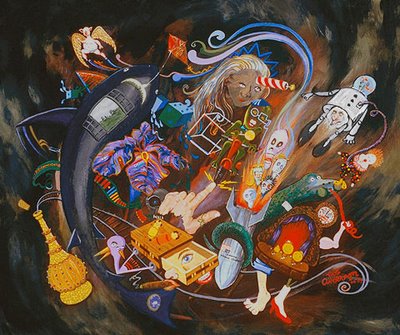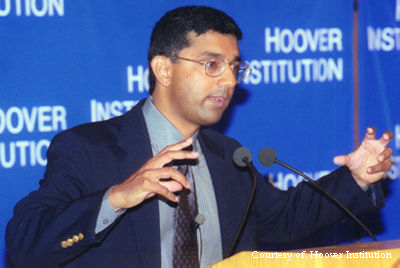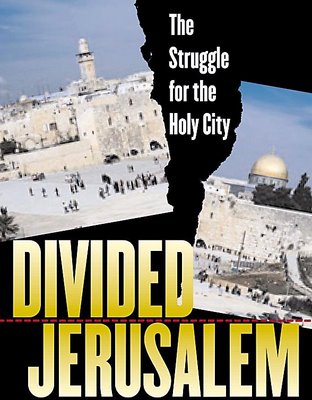Fjordman is one of those rare European writers that eschew the predominate tide of slanted Left Socialist Liberalism. Or at least in the case of political correctness as it pertains to the social acceptance of Mohammedanism.
The essence of Fjordman’s essay is that the West should reject Mohammedanism as a viable mechanism within the bounds of what we would normally call Liberty and Freedom of religion or thought. Fjordman addresses the accusation of racism or Islamphobia that would be involved such a Mohammedan rejection.
Fjordman even engages North American Conservative writers that have lost their vigor and have acquiesced to an eventual Mohammedan global domination. Thank God Fjordman takes a stand that what the world is seeing is actually the strong last gasp of an ideology that will fade due to its intolerant fascist death-cult nature.
This is a MUST READ!
Critics would claim that Mr. Steyn isn’t contributing to maintaining Western willpower by suggesting that we’ve already lost. Still, I shouldn’t be too hard on him. The Canadian Council on American-Islamic Relations
denounced his article as “Islamophobic, inflammatory and offensive.” If CAIR dislikes you, you know you must be doing something right.
But he makes other assertions I strongly disagree with, such as indicating that the United States should
remain in Iraq to spread democracy: “What does it mean when the world’s hyperpower, responsible for 40 percent of the planet’s military spending, decides that it cannot withstand a guerrilla war with historically low casualties against a ragbag of local insurgents and imported terrorists?”
Here, Mark Steyn is wrong, which indicates that he doesn’t fully understand Islam. The entire project of “spreading democracy” was a mistake from the very beginning, because democracy cannot be exported to an Islamic country such as Iraq. It is stupidity to waste hundreds of billions of dollars on Muslims while Islamization continues apace in the West.
Steyn also does not fully understand the issue of demography. Islamic countries are parasitical. Even the massive population growth is only an advantage as long as Muslims are allowed to export it to infidel lands. Deprived of this opportunity, and of Western aid, the Islamic world would quickly sink into a quagmire of overpopulation. This is a long-term solution, to demonstrate to Muslims the failure of Islam.
According to
Srdja Trifkovic, the author of
Defeating Jihad, “The tangible cost of the presence of a Muslim man, woman and child to the American taxpayer is at least $100,000 each year. The cost of the general unpleasantness associated with the terrorist threat and its impact on the quality of our lives is, of course, incalculable. (…) There is a direct, empirically verifiable correlation between the percentage of Muslims in a country and the increase of terrorist violence in that country (not to mention the general decline in the quality of life and civilized discourse).”
Sooner or later, we have to deal with the implications of this fact. The best way to deal with the Islamic world is to have as
little to do with it as possible. We should completely stop Muslim immigration. This could be done in indirect ways, such as banning immigration from nations known to be engaged in terrorism. All Muslim non-citizens in the West should be removed. We should also change our laws to ensure that Muslim citizens who advocate sharia, preach Jihad, the inequality of “infidels” etc should have their citizenship revoked and be deported back to their country of origin.
We need to create an environment where the practice of Islam is made difficult. Muslim citizens should be forced to accept our secular ways or leave if they desire sharia. Much of this can be done in a non-discriminatory way, by simply refusing to allow special pleading to Muslims. Do not allow Islamic public calls to prayer as this is offensive to other faiths. Both boys and girls should take part in all sporting and social activities of the school and the community. The veil should be banned in public institutions, thus contributing to breaking the traditional subjugation of women. Companies and public buildings should not be forced to build prayer rooms for Muslims. Enact laws to eliminate the abuse of family reunification laws. Do not permit major investments by Muslims in Western media or universities.
It is conceivable that some infidel nations will copy the Benes Decrees from Czechoslovakia in 1946, when most of the so-called Sudeten Germans had shown themselves to be a dangerous fifth column. The Czech government thus expelled them from its land. As Hugh Fitzgerald of Jihad Watch has demonstrated, there is a much better case for a Benes Decree for parts of Europe’s Muslim population now than there ever was for the Sudeten Germans.
Is that racism and Fascism you say? Muslims themselves in poll after poll state that their loyalty lies with the Islamic Umma, not with the country they live in. “I’m a Muslim living in Britain, I’m not British” is the sentiment. Well, if Muslims themselves state that their citizenship is not worth the paper it is printed upon, why not take their word for it?
David Selbourne, author of
The Losing Battle with Islam thinks that “Islam’s
swift progress is easily explained. For the West — but not China or India — is as politically and ideologically weak as the world of Islam is strong. The West is handicapped by many factors: its over-benign liberalism, the lost moral status of the Christian faith, the vacillations of its judiciaries and the incoherence of their judgments, political and military hesitations over strategy and tactics, poor intelligence (in both senses), and the complicities of the ‘Left’.”
Can the West defeat the Islamic threat? Selbourne states
ten reasons why not, including the extent of political division in the non-Muslim world about what is afoot, the confusion of Leftist “progressives” about the Islamic advance, anti-Americanism and the vicarious satisfaction felt by many non-Muslims at America’s reverses, as well as the West’s dependency on the oil and material resources of Arab and Muslim countries.
According to him, Islam will not be defeated because “the strengths of the world community of Muslims are being underestimated.” Yet another indication that Islam’s advance will continue lies in “the skilful use being made of the media and of the world wide web in the service both of the ‘electronic jihad’.”
I agree with him that the cultural weakness of the West is a major disadvantage, and has been one important reason behind the recent resurgence of Jihad. It was never inevitable that we allowed millions of Muslims to settle in our lands. This was the result of Multiculturalism and the weakening of our cultural identity, and in Europe with the deliberate help of Eurabians.
The impact of globalization and modern mass media is more complicated and has contradictory results. As one pundit at ex-Muslim
Ali Sina’s website put it: “Rituals are important as brainwashing tools to instill discipline and loyalty. Islam’s focus on rituals remind me of the rituals in the military. (...) But what worked well for a medieval war machine is disastrous for Muslims in the modern world. The Arab war machine was supported by the blind obedience, brotherhood, courage, hatred and high birth rates inspired by Islam. (...) But these same qualities are handicaps for Muslims in the age of the microchip. Today they lead to poverty, belligerency, war and defeat.”
Islam was perfect for medieval warfare, but gradually lost out to the West, especially after the Scientific and Industrial Revolutions, which could never have taken place in Islamic lands because of their lack of freedom and their cult of authority. Ironically, history has now gone full circle. Muslims are still useless in developing anything new, but as a result of migration, modern communications, the presence of Muslims in infidel lands and Arab oil revenues, they can more readily buy or expropriate technology from others. The Iranian Revolution was aided by audio cassettes of speeches by the Ayatollah Khomeini.
In the book
The West and the Rest: Globalization and the Terrorist Threat, Roger Scruton argues that globalization “offers militant Islam the opportunity that it has lacked since the Ottoman retreat from central Europe.” It has created “a true Islamic umma, which identifies itself across borders in terms of a global form of legitimacy, and which attaches itself like a parasite to global institutions and techniques that are the by-products of Western democracy.”
The “techniques and infrastructure on which al Qaeda depends are the gifts of the new global institutions. It is Wall Street and Zurich that produced the network of international finance that enables Osama bin Laden to conceal his wealth and to deploy it anywhere in the world. It is Western enterprise with its multinational outreach that produced the technology that bin Laden has exploited so effectively against us. And it is Western science that developed the weapons of mass destruction he would dearly like to obtain. His wealth, too, would be inconceivable without the vast oil revenues brought to Saudi Arabia from the West, there to precipitate the building boom from which his father profited.”
While Scruton gives some support to the idea that the Internet and modern communications technology have strengthened Islam, there are some contradictory views worth listening to.
Theodore Dalrymple thinks that “Islam has nothing whatever to say to the modern world,” and states that “Personally, I believe that all forms of Islam are very vulnerable in the modern world to rational criticism, which is why the Islamists are so ferocious in trying to suppress such criticism. They have instinctively understood that Islam itself, while strong, is exceedingly brittle, as communism once was. They understand that, at the present time in human history, it is all or nothing. (…) Islamism is a last gasp, not a renaissance, of the religion; but, as anyone who has watched a person die will attest, last gasps can last a surprisingly long time.”
Although some of the tensions we are seeing now are caused by Western cultural weakness, part of it is also related to the impersonal forces of technological globalization. Previously, Muslims and non-Muslims could for the most part ignore each other on a daily basis. This is no longer possible, because Muslims see the Western world on TV every day. And if somebody in, say, Denmark says something “insulting” about Muhammad — which in the 19th century would have gone unnoticed in Pakistan or Egypt — thanks to email, mobile phones and satellite TV, millions of Muslims will know about it within hours. However, this can potentially be good for non-Muslims.
Contrary to what Selbourne claims, the Internet has in fact emerged as an important, perhaps crucial factor in the Western resistance, as author
Bruce Bawer has noticed: “Thank God for the [Inter]Net. I tremble at the thought of all the things that have happened during the past years that I would never have known about without it. The bloggers have in some cases reported about things that the mainstream media has left out, and in other cases pointed out omissions and distortions in the media coverage. Frequently, the mass media has felt compelled by the bloggers to pay attention to stories they would otherwise have ignored. The blogosphere is a fantastic way to spread news. If an important event has been reported in just a single, insignificant local paper, one blogger somewhere will have written about it, other bloggers will have linked to him etc. so that the news story is passed on to blog readers around the world. If Europe is saved, it will be because of the Internet.”
Columnist Caroline Glick of the Jerusalem Post praises the blogosphere and states that: “The responsibility of protecting our nations and societies from internal disintegration has passed to the hands of individuals, often working alone, who refuse to accept the degradation of their societies and so fight with the innovative tools of liberty to protect our way of life.”
J.R.R. Tolkien’s epic tale the Lord of the Rings is a story about the little people, the Hobbits, saving the day in the end. The most powerful enemy within in Tolkien’s story is the wizard Saruman. In the West now, Saruman corresponds to a whole class of people in politics, the media and academia. The Sarumans of the West are met with resistance from thousands of little hobbits in cyberspace, and they don’t like it. Pessimists claim that this era is merely the Wild West period of the Internet, which will gradually become tamed and censored. That is possible, but even if events should turn out that way, the Internet will still have given an important contribution to the Western resistance of our time.
Seaborne believes that many people are underestimating the strength of Islam. Perhaps, but some observers, including Mark Steyn and Mr. Seaborne himself, may be overestimating it. They overlook the fact that Islam has many weaknesses, too. Don’t underestimate your enemy. Muslims should be credited for making clever use of our weaknesses, but this “we’re all doomed and have already lost” theme is overblown.
We should implement a policy of containment of the Islamic world. I’m not saying that containment is all that we will ever need to do, but it is the very minimum that is acceptable. Perhaps the spread of nuclear weapons technology, the darkest side of globalization, will trigger a large-scale war with the Islamic world at some point. The only way to avoid this is to take steps, including military ones, to deprive Muslims of such technology.
We should restrain their ability to hurt us physically. We can’t prevent it completely, but we should limit it as much as possible. Muslims try to wear us down through terrorism. They should be worn down through mockery and criticism. We should also make clear that for every Islamic terror attack we will increase these efforts, which Muslims fear more than our weapons. It’s the new balance of terror.
Dr Koenraad Elst, one of Belgium’s best orientalists, thinks “Islam is in decline, despite its impressive demographic and military surge” – which according to Dr Elst is merely a “last upheaval.” He acknowledges, however, that this decline can take some time (at least in terms of the individual human life span) and that it is possible that Islam will succeed in becoming the majority religion in Europe before collapsing.
Dalrymple is probably correct when he says that Islam is an “all or nothing” religion which cannot be secularized. The future may not belong to Islam, as Mark Steyn suggests. It is conceivable that Islam in some generations will cease to be a global force of any significance, but in the meantime it will be a constant source of danger to its neighbors, from Europe through India to Southeast Asia. The good news is that Islam may not be able to achieve the world dominance it desires. The bad news is that it may be able to achieve a world war. We can only cage it as much as possible and try to prevent this from happening.














































